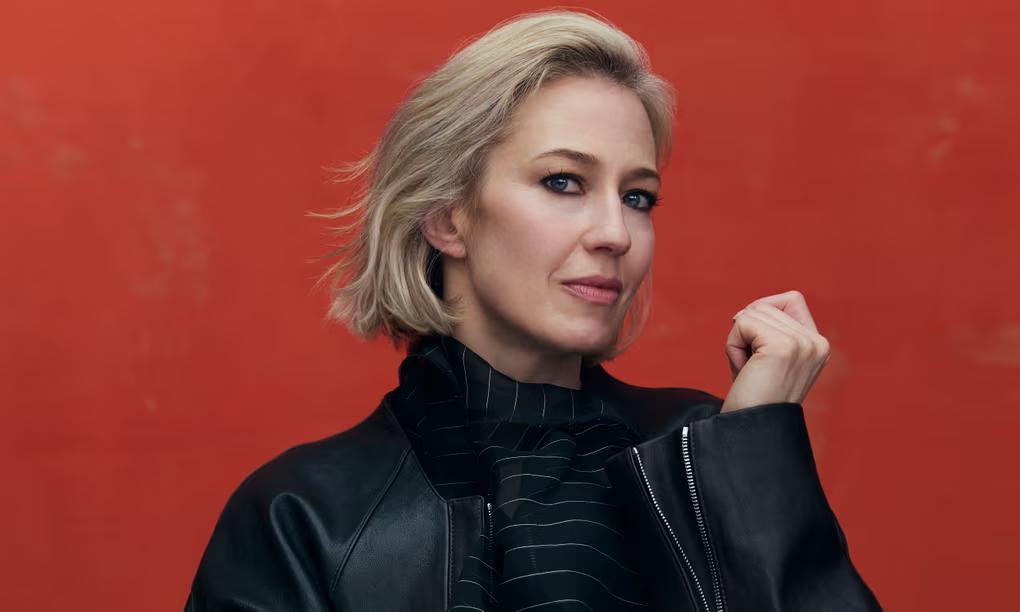Carrie Coon is no longer interested in the trivialities of small talk. “I tend to go right for the jugular,” she says with a grin, her sincerity palpable. The days of exchanging pleasantries about the weather or complimenting someone’s shoes feel long past; now is the time for deep, meaningful conversations. She often finds herself posing a challenging question to those around her: “What are you afraid of?” She leans in slightly, emphasizing the weight of the inquiry.
Sitting in her New York home, Coon is surrounded by the chaos of family life, standing in front of a grey backdrop set up for her nanny’s audition tapes. This is a household where creativity flourishes—her nanny aspires to act, her husband, Pulitzer Prize-winning playwright Tracy Letts, is immersed in his art, and their young children keep the atmosphere lively and unpredictable. In this nurturing environment, Coon juggles motherhood, her own career, and the looming thoughts reflecting on the state of the world.
Coon’s roots trace back to Ohio, where she grew up as one of five siblings. The family dynamic changed when her parents made the decision to adopt her sister, Morena, when Coon was just three years old. Her father, who initially pursued a path toward becoming a Catholic priest, eventually returned to the family auto parts business, while her mother balanced her demanding nursing job, often working nights. This required Coon to take on a significant caregiving role; she babysat her brothers, managed household chores, and even excelled in sports like football, showcasing an early aptitude for responsibility.
In 2010, Coon’s theatrical journey took a pivotal turn when she was cast in a highly acclaimed production of Who’s Afraid of Virginia Woolf at the Steppenwolf Theatre Company, which would eventually transfer to Broadway. Despite the play’s reputation for depicting tumultuous relationships, it was during this production that she met Letts, who is 15 years her senior. Their relationship took a dramatic twist in 2013 when, following an unexpected emergency gallbladder surgery for Letts, the couple found themselves getting married in an Illinois hospital.
“The sight of Tracy in his hospital gown, barely holding it together, was surreal,” she recalls with a chuckle. “He was so high from the anesthesia. My family joked that the only way to get him to marry me was to drug him.” As she reflects on that unorthodox wedding, her laughter is tinged with warmth. “It turned out to be a remarkable day. The vows we exchanged forced us to confront the juxtaposition of life and death in a profound way.”







